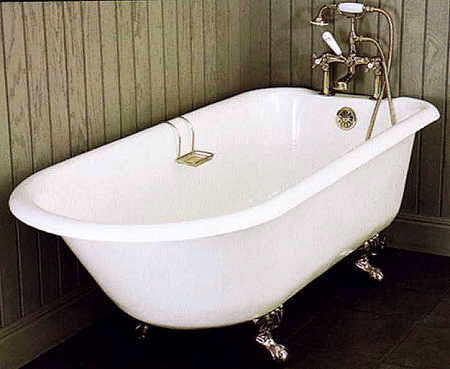Going to the Mikveh
Bathing in hot water on Shabbat is forbidden, lest people come to heat the bathwater. However, bathing in cold water is permissible (though it is restricted by custom – see MB 326:21). Even so, the Shulchan Arukh specifically tells us that immersing in a mikveh for purification is permissible (SA OC 326:8).
Why would we think that this kind of bathing needs special permission?
The Talmud concludes that it is forbidden to immerse clothes on Shabbat to purify them, because this is a kind of repair. The Talmud then asks, why are we allowed to immerse? Immersion of people effects a kind of spiritual repair! (Beitza 18a) Indeed, immersing a convert on Shabbat is forbidden for this very reason – it is the repair of the human being! (Yevamot 46b)
The answer given is that onlookers won’t be sure that the person is immersing for purity. Perhaps he is only hot, or dirty. It seems that while purifying ourselves on Shabbat is permissible, it is improper to make a point of it.
This reinforces what we mentioned last week: Legally, Shabbat is a day when material repair is forbidden. But at a deeper level, Shabbat as a day which is “like the World to Come” and a day when all our work is considered completed hints that even spiritual repair is not completely in character with the Shabbat. For example, vidui (the daily confession) is not recited on Shabbat, nor is tikkun chatzot.
The main work of fixing ourselves, like that of fixing our environment, is reserved for weekdays. On Shabbat we get an inkling of what it is like to achieve perfection in both our material environment and our inner character.
Rabbi Asher Meir is the author of the book Meaning in Mitzvot, distributed by Feldheim. The book provides insights into the inner meaning of our daily practices, following the order of the 221 chapters of the Kitzur Shulchan Arukh.
The words of this author reflect his/her own opinions and do not necessarily represent the official position of the Orthodox Union.

